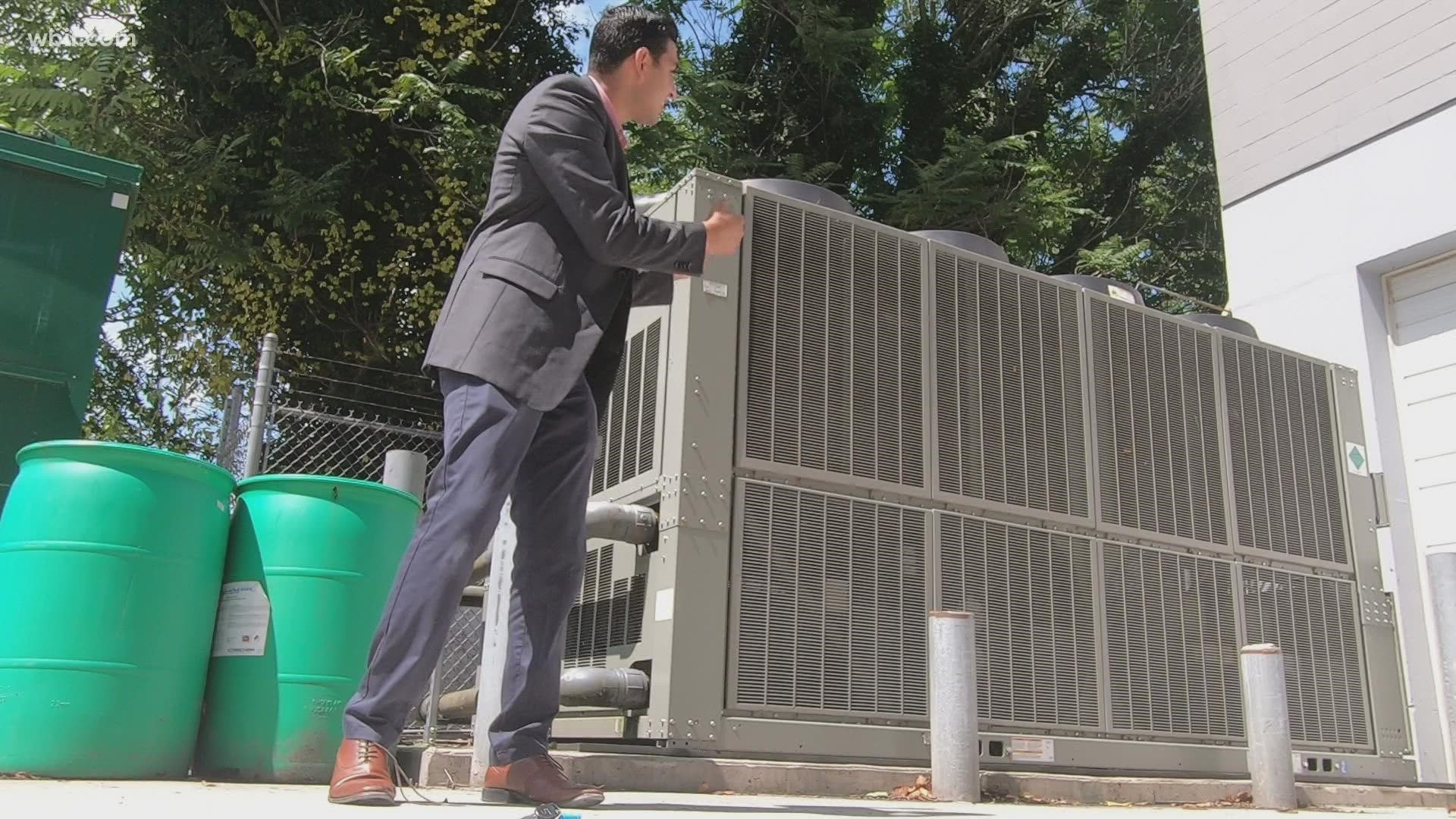OAK RIDGE, Tenn. — The Centers for Disease Control and Prevention said the COVID-19 virus spreads when an infected person breathes out, creating small droplets with the virus in them.
Dr. Jason DeGraw studies the way these viruses, including the virus that causes COVID-19, spread in buildings.
He said the small droplets are usually filled with water, but can also contain the coronavirus if the person releasing them is infected. If the droplets are small enough, DeGraw said they can stay in the air for a "very long time."
The World Health Organization and CDC said the coronavirus spreads more easily indoors than it does outdoors because the air outdoors is diluted more easily and quickly.
DeGraw said the easiest ways to prevent the spread of coronavirus indoors is through ventilation and air filtration technology. Both are intended to make the air safer to breathe, diluting the concentration of viruses in the air. Ventilation means replacing indoor air with clean, outdoor air.
"When you're replacing that contaminated air with clean air, you're reducing potential exposure for other occupants," DeGraw said.
DeGraw recommends keeping the windows and doors open to improve ventilation, if possible.
If it's not possible, DeGraw said it's best to keep the air conditioner running when people are inside of a building. DeGraw said most commercial HVAC units bring in outside air and recirculate air that's already inside, while residential HVAC units mostly recirculate the air.
The recirculated air is usually filtered.
The American Society of Heating, Refrigerating and Air-Conditioning Engineers released recommendations for air conditioning buildings during the pandemic.
ASHRAE recommends using MERV 13 filters or better in HVAC systems to prevent viruses from spreading. DeGraw said it's important to make sure that a building's heating and air conditioning systems can handle that level of air filtration before using MERV 13 filters.

